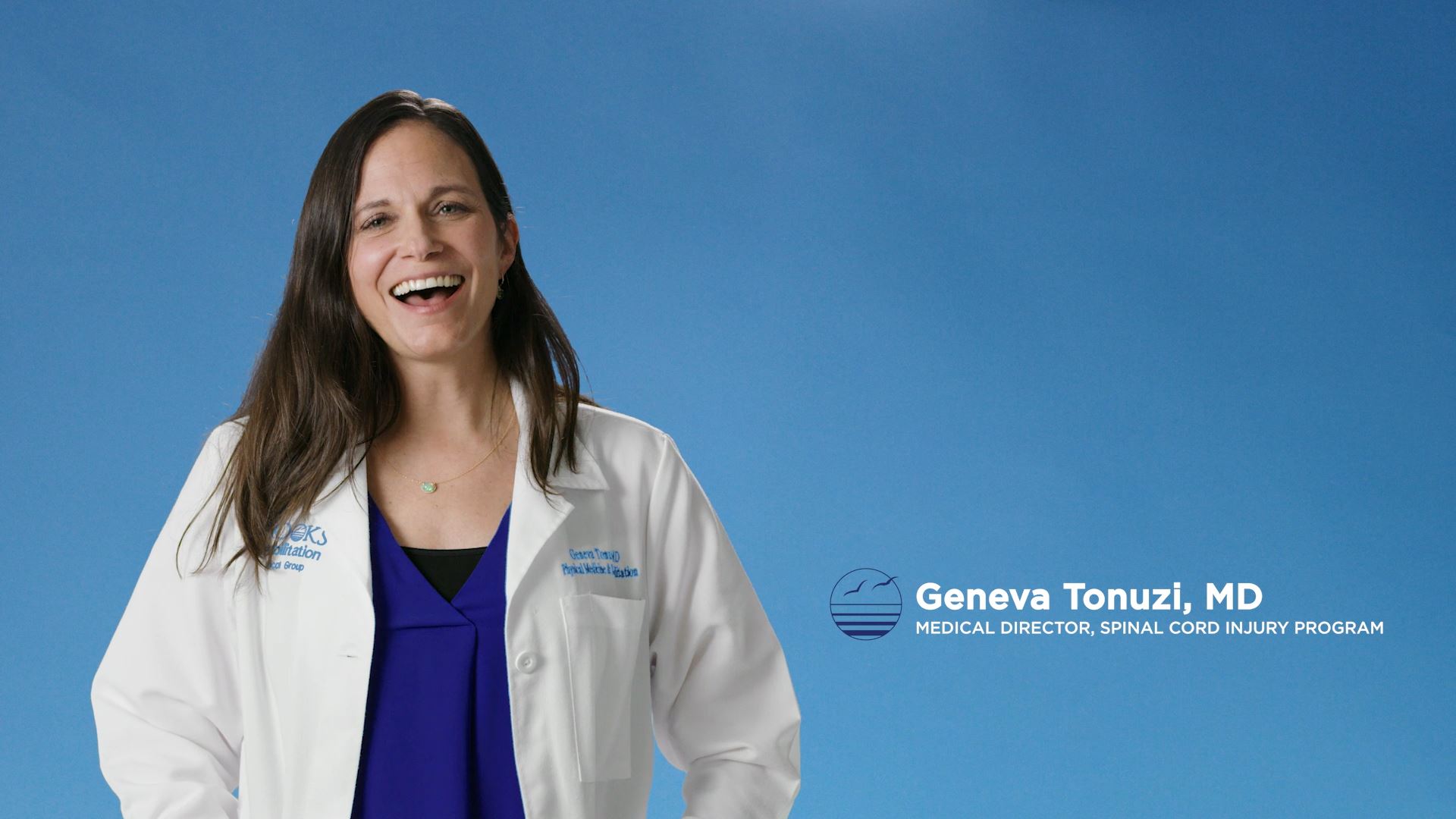Dr. Geneva Tonuzi Discusses Spinal Cord Rehabilitation

Back to physical health resource hub
Video Transcript
Hi, I’m Dr. Geneva Tonuzi here at Brooks Rehabilitation Hospital. I’m the Medical Director of the Spinal Cord Injury Rehab Program.
There are many factors that kind of come into play when you’re looking at someone’s recovery from a spinal cord injury. So, first of all, it is how they are treated initially in acute care before they even come to Brooks and minimizing complications at that point. Then, they get in touch with our nurse liaisons, who get them into the Brooks inpatient setting, where we – from the get-go – need to both empower the patient and the family members on how to best move forward and kind of move on from this initial injury.
We are blessed at Brooks because we do have a Neuro Recovery Center on the first floor that is intended not just for outpatient use but also for our current inpatients. So once they are really able to get to the point where they are able to get in and out and get to the gym and participate in three hours a day and even beyond that, then they start progressing to our Neuro Recovery Center. It’s a place where we have as many different types of technology as you can think of to really enhance the recovery of our patients, not just spinal cord injury, but really any patient with any sort of neurological issue.
We have a Zero-G technology, which basically is kind of a bodyweight support that is used for our patients to help them walk but also be supported so they are not afraid of falling. We have functional electrical stimulation, so our FES bikes that are pretty common in use for all of our patients with mobility limitations. Whenever I have a patient who does have a significant involvement from a spinal cord injury standpoint, I really want them to take advantage of one of our Neuro Recovery Centers because they will have equipment there that they are not going to get anywhere else.
I think it’s so important for them to understand that even though, obviously, a spinal cord injury is traumatic and life-changing: there is a lot of hope for recovery, there’s new technology all the time, there’s new research all the time. Not everything in their life has to change, so even though work might not look the same as it did before – there may need to be different adaptations to be able to return to work – we do have a lot of patients who are able to return to work and it may be in a different capacity, but many, many people go on to live very, very full lives after a spinal cord injury.
Learn more about the Spinal Cord Injury Rehabilitation Program.
Our Experts
Check out the other videos in our physician series!


